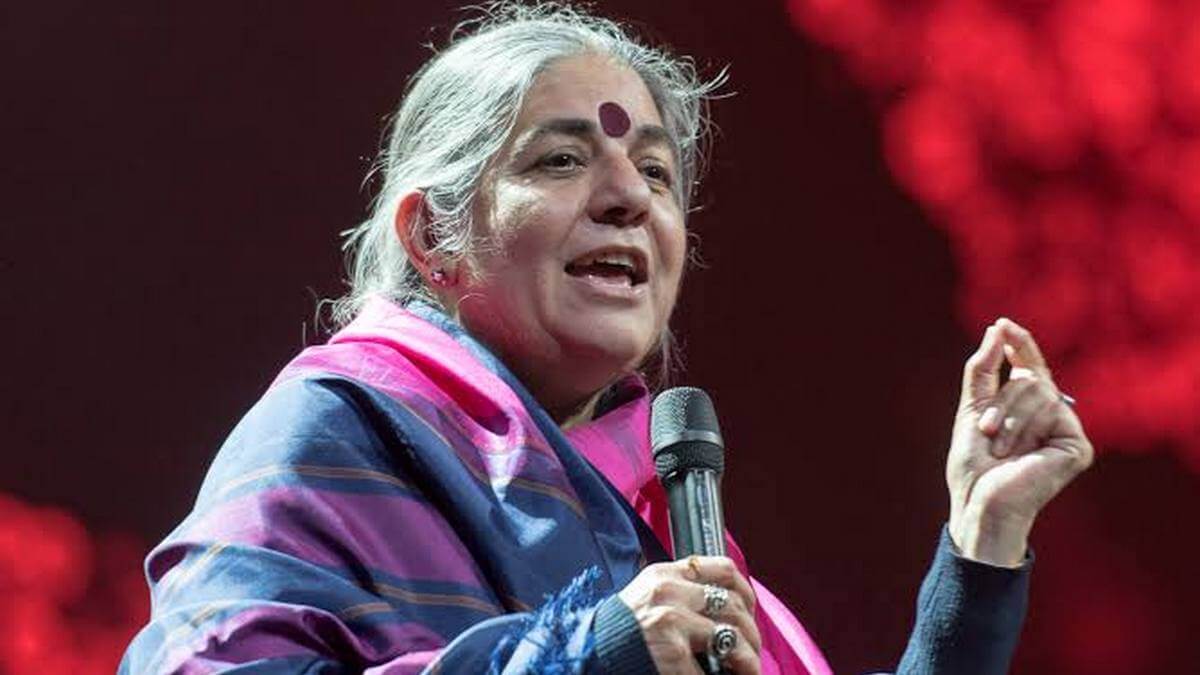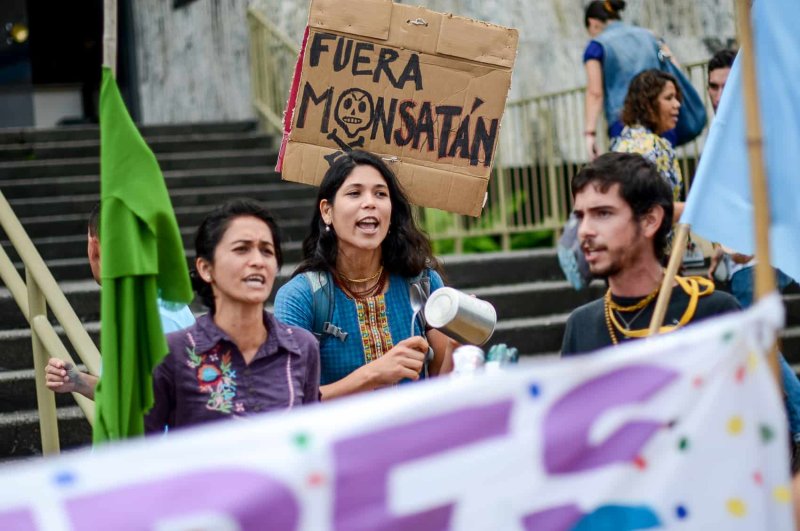On New Year’s Eve 2020, the Mexican government announced its plan to ban GMO corn and phase out GMO corn imports and the use of glyphosate, all by 2024. According to the decree, this was an effort to contribute to food security and sovereignty, and to protect “native corn, corn-fields, bio-cultural, farming communities, gastronomic heritage and the health of Mexicans.”
Since this decree was presented, several groups have spoken out showing their disagreement to this unilateral decision. The most active critics have been the Mexican farmers associations that even used legal actions against the Presidential Decree. Despite the protests and critics, however, the Decree and its applications are moving forward. Glyphosate imports were denied at the beginning of 2020, and now Mexico is delaying GMO corn import permits.
In the end the legality of the bans will probably be decided by the Supreme Court, but what is behind this decision? Whose voices endorsed this kind of measure in Mexico?
Voices behind the ban
This decision has been criticized by the country’s agricultural industry and scientific community but praised by organic growers. Homero Blas, president of the Mexican Society of Organic Production,, described the government’s decision to ban GMO corn and gradually replace the use of glyphosate as a “huge victory.” This “victory” comes from a long-waged battle from environmental groups that had launched several campaigns in Mexico to ban GM technology from the fields. Now, with a like-minded government in office, their agenda has materialized.
Vandana Shiva — A usual “international” suspect

Part of the efforts over the years from GMO opponents, have been to promote specific voices to disseminate messages and to reach a wider audience. With the current Administration, some of these voices come from government sites. But other voices come from farther away. One voice used by activists is from the well-known “rock star” of the anti-GMO movement: Vandana Shiva, who has been a regular speaker in most forums organized in Mexico, and even has been recognized for hers work and efforts to protect agrobiodiversity. Of all the times that Vandana Shiva visited Mexico, one of the most controversial was when she had the chance to deliver a presentation in the Mexican Senate. Talking directly with them is a privilege that few Mexicans have. At every opportunity Shiva had to visit and speak in Mexico, she used the same message against the adoption of transgenics in the country as a way to prevent giving power to transnationals, and supporting measures to restrict the use of GM crops in Mexican fields. With a speaker fee from $30,000 to $50,000 USD, the question remains: Who paid for her? The answer may be who benefits from a GM ban in Mexico.
Chef Enrique Olvera

Other voices come from ideology rather than from a scientific viewpoint. Chef Enrique Olvera, owner of one of the most famous restaurants in the word: Pujol, and an authority in the Mexican cuisine, has been very active since 2015 showing his disapproval of GM corn and its use in Mexican gastronomy. Arguing through an association named the “Mexican Cooking Collective” he said that GM corn is a “threat to native corn and jeopardizes its existence,” and that “due the uncertainties derived from the use of GM crops, its use should be banned.” Now, over 100 chefs have joined Olvera in endorsing different environmental NGOs statements from Greenpeace Mexico.
Some prominent scientific figures strongly criticized this posture presented by the Mexican chefs. Luis Herrera Estrella, one of the most influential figures in the world in biotechnology, and the only Mexican who the 100 most recognized, declared the chefs’ attempt to promote the ban on GM corn “a shame that chefs speak with such ignorance in public. Hopefully, they dedicate more to continue improving dishes and less to comment on issues that they do not know,” and that “What these groups that oppose the use of GMOs do is prevent our farmers from having access to a technology that can benefit them. They are violating the human rights of farmers, not the companies that put a product on the market for whoever wants to buy it.”
It is worth mentioning that Olvera’s target audience is his restaurant patrons. His message appeals to higher economic classes due the exclusivity and high prices of his dishes. Olvera recently was the target of controversy after he showed the restaurant’s own tortillas are made from native corn – as a way to show they do not need GM maize – but the elevated price of the tortillas was highly criticized.
Jesusa Rodriguez

Jesusa Rodriguez actress, performance artist, social activist and now elected Senator, is one of the louder voices that celebrated the decree to ban GM maize. Taking advantage of her political position, she has been a strong opponent to GM corn and one of the main supporters of a Federal Law for the Promotion and Protection of Native Corn. Jesusa received media coverage in her press conferences because she usually makes performances, fringe declarations (she declared that Mexicans are eating cancer from tortillas) and offers entertainment instead of science-based arguments. One of her most notorious performances occurred when she took over the Senate Chamber with masked actors representing the “corn essence” and delivered a statement saying that just “native corn is the answer, and the way to go” and that “adopting GM maize, is embracing death.” Jesusa’s reach is not limited to press conferences and statements in the Senate Chamber. Recently she started to be active on YouTube, disseminating the exact same message, as well as on Twitter where using her acting skills she delivers performances echoing myths and disinformation that do not have any scientific backing.
Elena Alvarez-Buylla

One of the strongest and most influential voices comes from a surprising source: the head of the National Council of Science (CONACYT). Elena Alvarez-Buylla, a well–known anti-GMO activist who had dedicated her life to spread myths and disinformation regarding the use and effects of GM crops, often argues her statements are based in science. However, her statements have been refuted by colleagues. The influence and power of Elena’s voice and her followers of link-minded scientists use the science that is convenient for them – such as the infamous Seralini study that attempted to connect glyphosate and disease – are responsible for current measures taken to “protect native maize.” At the same time they are responsible for growing dependence on corn imports (which is mostly GM grain). Elena’s voice is now being listened to in the corridors of power., As Science Minister she has a direct communication with the Mexican President and she has continued its anti-GMO activism. So, there was no surprise to the scientific community that once the Presidential Decree was presented it included arguments and statements that Elena had used in the past.
Voices disconnected from reality
These are some of the most influential voices that have worked to achieve the kind of measures as the Presidential Decree, which is an opportunity to gradually scale the ban to all GM crops. These voices as well as many others, come from the privilege and the comfort of office, the entertainment industry, an executive office or a fancy restaurant. Voices against the ban come from the fields, because the farmers’ associations have been the main opposition to this ban. Mexico’s National Agricultural Council (CAN) emphasized through a press release that the decree will severely affect Mexico’s food production systems as well as dramatically upend the current grains trade between Mexico and the U.S.
In Mexico, coming decisions will be crucial for its future. Doing simple math shows that without GM imports from the US and without the use of GM seeds in the fields, just using traditional corn, there is no way to satisfy the demand for grain and food. An economic crisis could be on the horizon, since maize it is the main grain for millions of Mexicans every day.
Luis Ventura is a biologist with expertise in biotechnology, biosafety and science communication, born and raised in a small town near Mexico City. He is a Plant Genetic Resources International Platform Fellow at the Swedish University of Agricultural Sciences. Follow him on Twitter @luisventura































